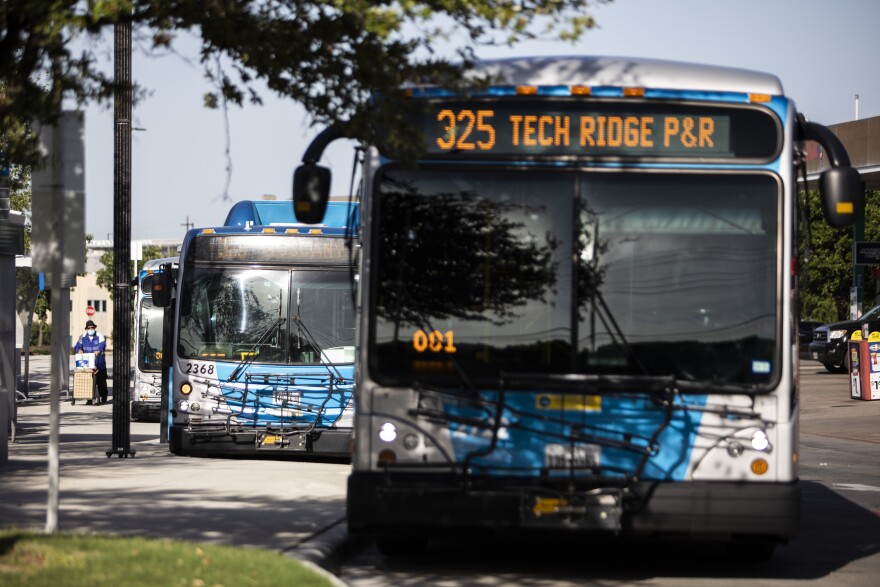As gas prices hover near record highs — taking a big chomp out of many household budgets — the region's public transit agency is sending hundreds of buses into the streets every day topped off with diesel costing less than $2 a gallon.
Capital Metro burns through some 4.5 million gallons of diesel per year powering more than 500 buses, vans and commuter trains. That doesn't include all the service vehicles like maintenance trucks and cars for supervisors.
The Austin area average for a gallon of diesel is $5.29, according to AAA. So how is Capital Metro buying diesel for close to a third of what it costs at the pump?
Like most transit agencies, CapMetro often buys fuel in advance to lock in prices. When gas prices hit rock bottom near the start of the pandemic in March and April 2020, Capital Metro went on a buying spree, snapping up the rights to buy millions of gallons of fuel at those low prices.
The bet paid off.
As fuel prices have risen, CapMetro is shelling out an average of $1.90 a gallon for fuel this fiscal year and expects that to rise to just $2.40 in the next fiscal year as the cheaper fuel runs out.
By fiscal 2024, which starts in October 2023, Capital Metro expects to be paying market rate for diesel and gasoline.
Depending on where diesel prices are in late 2023, the cost increase for the agency could be dramatic, potentially amounting to tens of millions of dollars per year.
But fuel still makes up a relatively small portion of the agency's budget. This year, CapMetro planned to spend about $12 million on fuel from an operating budget of $323 million.
Eventually, diesel prices won't matter as much to CapMetro, because the agency is shifting to electric buses. Twelve have been in service for about a year and a half. The agency's board has approved buying 197 more. Sixty-seven of those are on order.
But CapMetro hasn't announced a clear timeline for when it will shift entirely to electric buses, even though electrification of the fleet is part of the plan under the multibillion Project Connect transit expansion.
And while electric buses offer benefits from reduced emissions, a quieter ride and no diesel fumes in the face when standing next to the bus, transit agency officials were uncertain whether electrifying the fleet would save on fuel costs.
"Right now, I don't think anybody could tell you definitively that electric is going to be cheaper than diesel," CapMetro's deputy finance chief Kevin Conlan said at a recent board meeting. "But it appears that it's going to be cheaper overall as far as the cost of electricity overall vs. fuel, maintenance [and] not having all the parts that a diesel bus would. Hopefully, we'll generate some type of savings."






